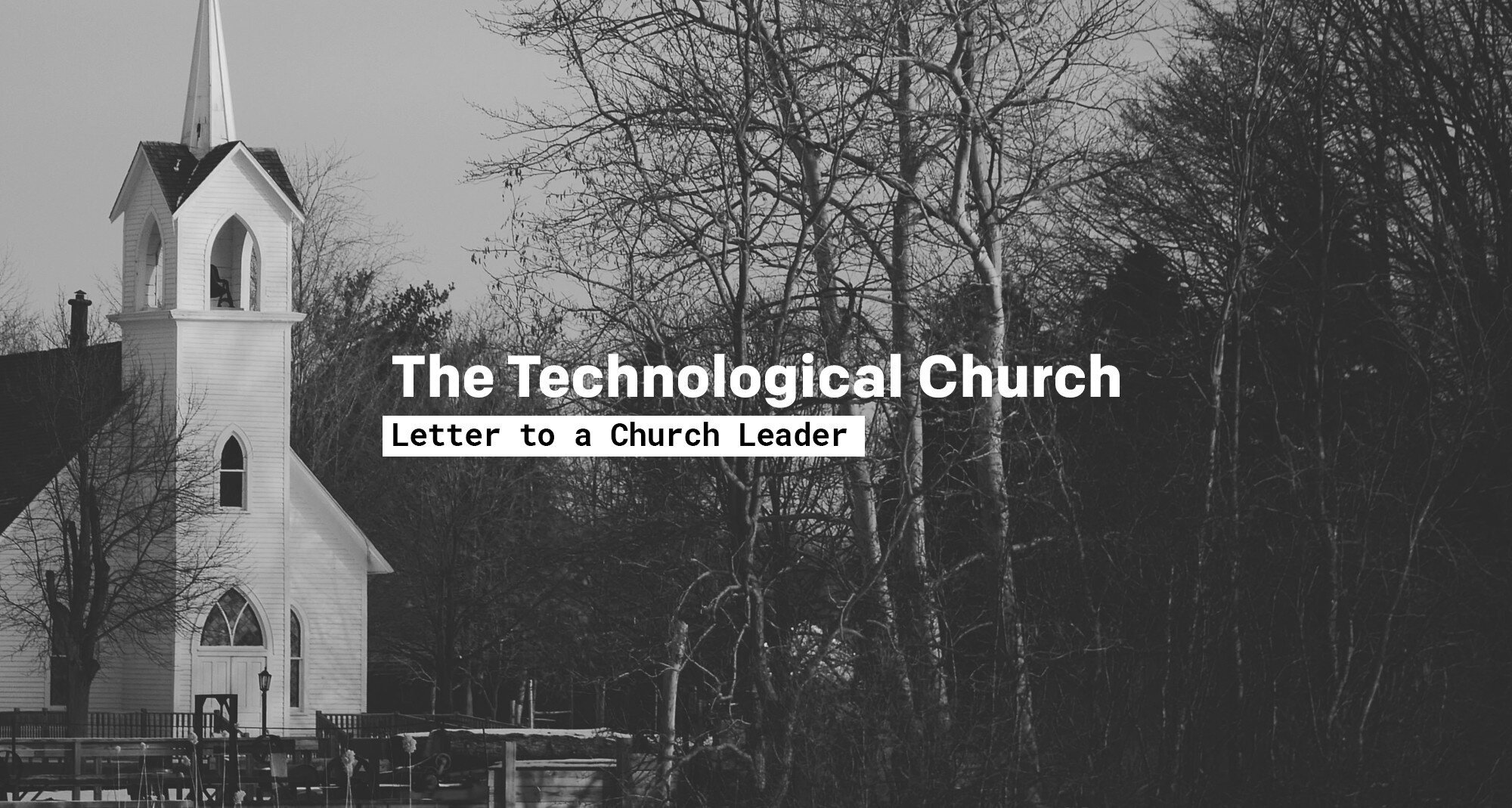
Dear Church Pastor,
Please allow me to introduce myself. I’ve never studied Greek or Hebrew, I’ve never preached a sermon or even taught a youth group, and I’ve never led worship. I’ve never had to make difficult decisions like how to guide a congregation in participating in the sacraments or how to structure a liturgy. I’m not a renowned theologian, but I am a theologically trained artist and communications professional. I study technologies to see how they affect the people who experience them. And I’m learning from scholars in education, literature, technology, sociology, history, theology, and media studies to see what observations and perceptions they can offer the people of God. The more I study, the more I’m convinced that they have things to say that are far too important for the church to ignore.
Maybe you’re the sole pastor of a small church plant and you’re just trying to keep the doors open. Or maybe you are on staff at a church with thousands of members and a budget that allows for every possibility you could dream of. Either way, you probably don’t have time to read thousands of pages of communications theory. There’s no time in your schedule for a sociological research project. You’re probably pretty skeptical about all this to begin with, and if we’re being honest, it’s not your area of expertise.
But it is ours. We theologically minded communicators and artists, we’ve spent years studying and creating and asking questions and searching for answers. We’ve spent most of our lives wondering if there’s a place in the church for us, and we long to use our gifts and knowledge for the benefit of the body of Christ. We believe we have important things to say about the life of the church. We want to have conversations with you about how our technology changes the way we perceive our faith. We want to speak about how communications studies can help our understanding of theology and liturgy.
We want to find wholeness, presence, and reality in a world of fragmentation, isolation, and deception.
We’re just not sure those are conversations most church leaders are interested in having. So here’s what we’re asking of you church leader: let’s have a conversation. We’re not asking for a position of leadership. We’re not even asking you to make a bunch of changes in your church. But we are asking for a place at your dinner table or at your favorite coffee shop. So please, listen. Make room for us. We’re convinced it will be worth your time. And we hope this essay is just the start of that conversation.